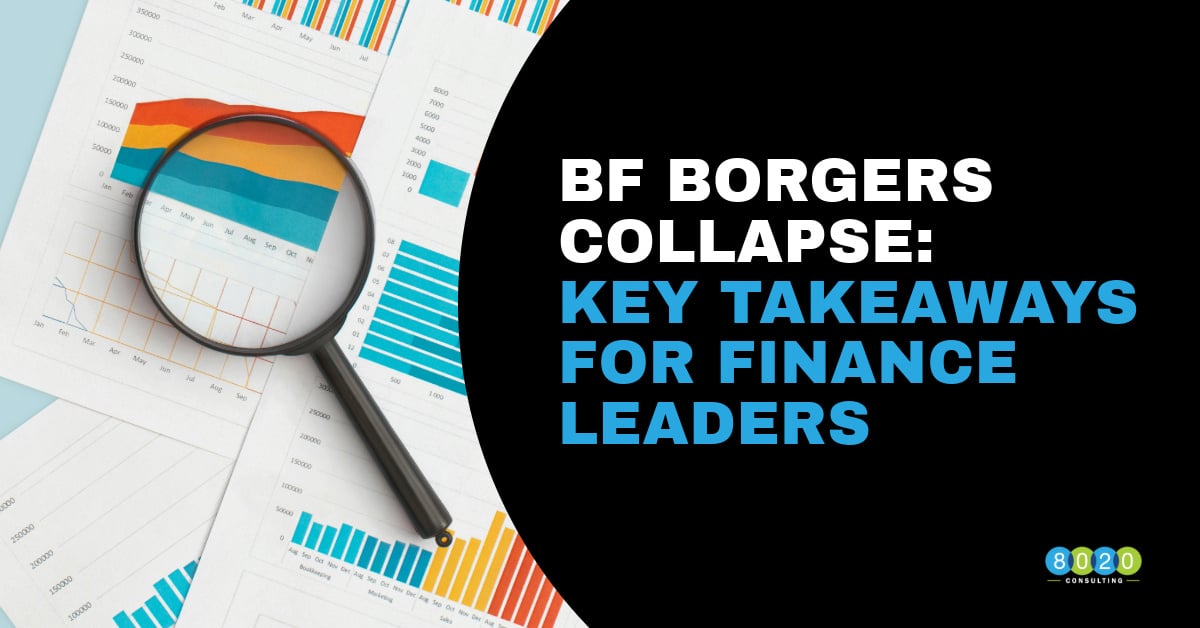
BF Borgers is the latest audit firm to fail in its regulatory requirements and, as a result, has agreed to shut down its assurance practice. They were charged with deliberate and systemic failures to comply with Public Company Accounting Oversight Board (PCAOB) standards in its audits and reviews incorporated in more than 1,500 SEC filings from 2021 through 2023, and falsely representing to their clients that they did comply. The key failures included lack of supervision on audit engagements, improper retention of audit workpapers, and lack of internal engagement quality reviews. One notable failure involved BF Borgers’ staff copying workpapers from previous engagements for their clients, changing only the dates. Additionally, the firm was banned by the Canadian Public Accountability Board from accepting new clients in Canada for failing to adhere to its standards.
As a quick refresher, the PCAOB is a nonprofit corporation established by Congress to oversee the audits of public companies in order to protect investors. The PCAOB also oversees the audits of brokers and dealers registered with the SEC. Created by the Sarbanes-Oxley Act of 2002, the PCAOB subjects audit firms to external oversight and has four primary functions: registration, inspection, standard-setting, and enforcement.
Key Takeaways for Finance Leaders
1. Review Inspection Reports
Review your current or prospective audit firm’s inspection reports on the PCAOB website. In its past five inspections, the PCAOB reviewed a total of 41 audits completed by BF Borgers, with a 95% deficiency rate. Their deficiency rate in three of the past four inspection years was 100%, with multiple deficiencies identified in every audit inspected. These deficiencies included insufficient testing of significant accounts, management estimates, and clients’ accounting methods. Audit committees, CFOs, and Controllers should review current audit firms’ inspection reports compared to their peers and include this in the due diligence process when selecting a new audit firm.
2. Ensure Your Company is Audited by a Reputable Firm
It may seem obvious, but ensuring your company is audited by a reputable firm is crucial. Financial leaders often choose an auditor for reasons such as cost, partner availability, audit approach efficiency, or industry expertise. However, be aware if an audit firm has a high client concentration of revenue, which could stress their independence. Irregularities found by the PCAOB may require your audit reports to be re-audited by a new firm, potentially costing hundreds of thousands in additional audit fees and affecting your professional reputation.
3. Understand PCAOB Requirements for Your Audit Firm
CFOs and Controllers value audits with no financial adjustments and timely filings. However, having a solid understanding of your audit firm’s PCAOB requirements can lead to more constructive conversations during the audit process. Efficiently concluding on moderate exceptions can be achieved by referencing secondary controls or providing alternative documentation rather than overly discussing materiality. Understanding the documentation that must be retained, levels of review required, and post-audit internal quality reviews can help maintain a positive relationship with your auditor while ensuring compliance with PCAOB requirements.
Conclusion
The collapse of BF Borgers highlights crucial lessons for Finance leaders about the importance of thorough oversight and due diligence in selecting and working with audit firms. Regularly review PCAOB inspection reports for your audit firms to identify high deficiency rates that signal significant risk. Choose reputable firms that maintain independence and adhere to PCAOB standards, considering factors beyond cost and availability. Understand PCAOB requirements to facilitate effective communication and problem-solving during audits, leveraging secondary controls and alternative documentation to address exceptions. By applying these lessons, you can protect your company from audit failures, ensure regulatory compliance, and safeguard your financial health.



